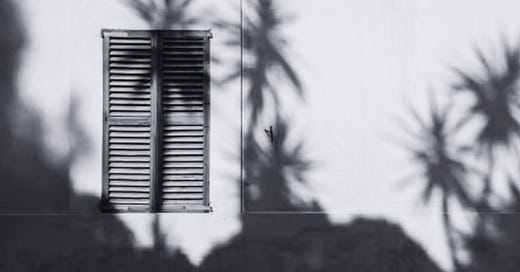Quotation Study: Martyr!, Kaveh Akbar
On the quiet excavation of being, art, and the ache of meaning...
This is not necessarily a review—I just love analysing and unpacking quotes, sometimes even individual words within them. However, as a general rule, if I underline lots of quotes, it’s usually a highly rated book!
These are studies of quotes within certain novels—either unpacking larger themes or simply exploring how each quote makes me feel on its own. I like applying quotes to my life, using them to articulate feelings I’ve never known how to describe. So, welcome to Quotation Studies.
There’s no rhyme or reason here. Just thoughts sprawled out onto a page. It’s me enjoying language as a former literature student who misses the act of unpacking words.
This weeks study: Martyr!, Kaveh Akbar
It’s been a long time since I’ve read something that felt this alive on the page. Not just stylistically — though the writing is luminous — but spiritually, philosophically, emotionally. Martyr! doesn’t just tell a story. It stirs something older and deeper: the ache of what it means to live, to lose, to wonder whether you are becoming anything at all.
Akbar’s debut novel read, to me, like a modern classic — not in the sense of canon or prestige, but in its clarity. Its conviction. It is unafraid of big questions, and it doesn’t stumble around them with irony or detachment. It goes in with a kind of trembling certainty: this is what it means to be human, or at least what it might mean.
At its heart, Martyr! follows Cyrus Shams, a recovering addict and Iranian-American writer circling questions of death, faith, inheritance, and purpose. His life is shaped by a series of absences — his mother, his homeland, a reliable sense of self — and he drifts, looking for figures to write about, to understand, perhaps to emulate. He’s searching not just for martyrs, but for meaning itself.
What struck me most, though, was how the novel quietly pulses with the theme of being — and the fragile, often directionless process of becoming.
“Humans are just a long emptiness waiting to be filled.”
This line stopped me. Not because it was bleak, but because it was honest. We are shaped by what we let in — people, stories, moments. And whether you’re watching a YouTube video or rereading a poem, you’re brushing up against another consciousness. You’re no longer alone. Cyrus’s journey, as much as it is about writing and grief, is also about forming a porous self: one that lets things in. That’s how he begins to stitch meaning back into his life — through fragments of others. Through small, almost invisible acts of community.
In that sense, the novel seems to echo the philosophical idea of the self not as a static entity, but as something constructed through action and encounter. We are not born with essence. We become through our choices, our losses, our reaching.
“Art was a way of storing our brains in each other’s.”
This line felt electric to me. I’ve always believed that art is a kind of communion — a transference of interiority. It’s how we send pieces of ourselves across time and space, hoping someone else will receive it and understand. In that way, art is an act of survival, maybe even of resistance. It says: I was here. I thought these things. I wanted to be known.
There’s something beautifully contradictory in the book’s engagement with martyrdom, too. While martyrdom suggests sacrifice for a cause, it’s also about legacy — about not dying for nothing. Writing, in this novel, becomes a quiet form of martyrdom: offering up the self, fragment by fragment, for the sake of remembering.
“We spend our lives trying to figure out how to pay back the debt of being.”
Here Akbar brushes against an existential weight I think many of us carry but rarely name. The idea that simply being alive incurs a kind of responsibility. To do something. To be someone. To not waste the gift — or burden — of time. I found this idea both moving and quietly terrifying. Because what if you don’t figure out how to pay it back?
“Behind me is silence, and ahead of me is silence.”
Two characters are speaking about writing here, but it felt, to me, like a description of life itself. We never really know what we’re doing until we’ve done it. We write without knowing where the sentence will go. We live without knowing where the meaning is. And yet, somehow, something forms.
Something is always forming.
My newsletters are all free to read (I gave up making them paid because I want everyone to read everything!) But please considering supporting a struggling 9-5 girl with just one iced latte!





Love these! Akbar’s prose is so rich in imagery, it’s no surprise he’s a poet. I loved this line:
The giraffe that had been lying there still was, lazily blinking his eyes open and closed. Its great neck curled like some alien punctuation.
I like these quotes and your philosophical analysis. This book has gotten very good reviews over the last few months. Did you enjoy it?